Description
BUY HYBRID GOATS FOR SALE
At Alpha Agventure Farms, we offer hybrid goats for sale, which are crossbreeds of Anglo-Nubians and Boer goats. These goats are bred to combine the desirable traits of both parent breeds, providing superior quality and performance. Our hybrid goats are meticulously cared for through our extensive Goat Housing Program, Goat Production Management, and Breeder Selection Program, ensuring that only the best animals are available to our customers.
We prioritize the health and well-being of our upgraded goats with a robust Health Management Program. Our hybrid goats receive quarterly deworming to maintain their health and vitality. Additionally, we administer Vitamin B-Complex, Iron, Vitamins ADE, and DCM (Dextrose, Calcium, and Magnesium) on a monthly basis. This comprehensive approach supports their overall health and ensures they remain in peak condition.
Our Biosecurity Program is designed to protect our goats from diseases, while our Health and Disease Management Program addresses any health concerns promptly. We also perform quarterly delousing to prevent infestations and ensure a clean, healthy environment for our goats. The price of upgraded goats reflects the quality and care they receive, making them a valuable investment for your farm.
We invite you to explore the opportunity to buy hybrid goats from us and enhance your herd with our top-quality offerings. Our commitment to excellence ensures that you receive goats that are not only healthy but also high-performing and reliable.
WHY BUY HYBRID GOATS FROM US?
1. We delouse our hybrid goats monthly once they turn 4-month-old.
At Alpha Agventure Farms, we begin a monthly delousing schedule for our hybrid goats starting at four months old. This essential practice helps control parasites, minimizing the risk of discomfort and disease from lice. Our consistent approach ensures that our goats remain healthy and comfortable, promoting better growth and productivity. By following this diligent protocol, we maintain high standards in animal care, ensuring that our goats are in optimal condition.
2. We deworm our hybrid goats every three months.
We adhere to a strict deworming regimen for our hybrid goats every three months to maintain their health and vitality. This regular treatment effectively controls internal parasites, preventing them from causing serious health problems. By disrupting the life cycle of these parasites, we manage both adult worms and larvae efficiently. This proactive strategy is crucial for supporting the overall health and growth of our goats, ensuring they meet high standards of well-being and performance.
3. We inject Vitamin B-Complex, Iron, ADE, and DCM into our hybrid goats every month, with an additional dose three days before delivery or pickup.
At Alpha Agventure Farms, we prioritize the health of our hybrid goats with monthly injections of Vitamin B-Complex, Iron, ADE, and DCM. We also administer an extra dose three days before delivery or pickup to ensure they are in peak condition. This comprehensive supplementation bolsters immune function and overall vitality, enhancing our goats’ resistance to diseases. By choosing our goats, you benefit from their excellent health and readiness, thanks to our careful and thorough care practices.
4. We have an online Goat Farming Seminar.
You can learn from our cultural management practices in raising goats and our marketing strategies for selling them by subscribing to our online Goat Farming Seminar. The seminar is divided into two modules: Module 1 (Cultural Management) and Module 2 (Agri-Marketing). In Module 1, you will gain valuable insights into effective goat housing design, production management at various scales, and breeder selection. We cover essential topics such as breeding programs, congenital defect prevention, and optimizing feed through an understanding of the goat’s digestive system. Additional training includes silage-making and disease management techniques.
Module 2 focuses on Agri-Marketing, providing strategies to boost your farm’s visibility and marketing effectiveness. Learn about search engine marketing, video marketing, and social media tactics to effectively promote your goat products. By the end of the seminar, you’ll be equipped with the knowledge and tools needed to manage your goat farm efficiently and market your products successfully.
HISTORY OF HYBRID GOATS IN THE PHILIPPINES
The history of goats in the Philippines dates back to the early Austronesian settlers who arrived on the islands thousands of years ago. These seafaring peoples brought goats with them as they colonized new territories across Southeast Asia. Goats were highly valued for their adaptability and ability to provide essential resources such as meat, milk, and hides. As communities developed in the Philippines, goats became integral to local agricultural practices, thriving in the archipelago’s diverse climates and helping lay the foundation for sustainable agriculture.
Spanish Colonial Period
The Spanish colonial period, beginning in the 16th century, significantly impacted goat farming in the Philippines. Spanish colonizers introduced European goat breeds, such as the Andalusian and Murciana, known for their milk production and hardiness. These breeds were integrated with local stock, improving the genetic diversity and productivity of goats.
Under Spanish rule, goat farming became more organized and widespread. Large estates and ranches were established, where goats were raised for milk, meat, and hides, contributing to the colonial economy. This period also saw the introduction of new farming techniques, further enhancing goat farming practices.
American Occupation and Agricultural Development
During the early 20th century, the American occupation brought significant changes to the agricultural sector in the Philippines. The U.S. government promoted modern farming methods and introduced additional goat breeds like the Anglo-Nubian and Toggenburg. These breeds were particularly valued for their milk production, aligning with efforts to improve dairy farming.
Agricultural education and training programs were established, emphasizing improved breeding techniques and animal husbandry practices. The introduction of these new breeds and practices increased milk yields and provided additional income for Filipino farmers.
Post-Independence and Modernization
After gaining independence in 1946, the Philippines focused on developing its agricultural sector, recognizing its importance to the economy. Goat farming continued to evolve with initiatives aimed at improving breeding practices, increasing productivity, and promoting sustainable methods. Training programs and resources were provided to help farmers adopt modern goat farming techniques.
These efforts enhanced the resilience and productivity of goat farming across the country. As a result, goat farming became an increasingly viable enterprise, contributing to rural development and food security in the Philippines.
Contemporary Goat Farming
Today, goat farming is a thriving industry, contributing significantly to the rural economy. The introduction of high-quality breeds like the Anglo-Nubian and Boer goats has increased productivity. Local breeds, such as the Philippine native goat, remain popular for their hardiness and adaptability, helping meet the growing demand for goat products.
FREQUENTLY ASKED QUESTIONS
Are you hybrid goats F1, F2, F3, or F4?
Filial generation tags are inapplicable to our hybrid goats because some are the result of our three-way crossbreeding program (breeding native or other upgraded goats with Anglo-Nubian and Boer goats). Filial generation tags can only be used if the buck’s breed has been consistently the same from the start of your breeding program.
Can I use your Hybrid or Upgraded Goats as breeders?
Yes, absolutely. Our hybrid or upgraded goats meet our strict breeder selection criteria and are well-suited for breeding purposes.
Where is your pickup site?
Our pickup location is at Block 7 Barangay San Manuel, Tarlac City. For precise directions, search for “Alpha Agventure Farms” on Google Maps or Waze. Please note, this is a pickup-only location. You should visit this site only if you have a scheduled pickup order. Walk-ins are not permitted.
Do you deliver Hybrid or Upgraded Goats anywhere in the Philippines?
Currently, our hybrid or upgraded goats are available for pickup only at our designated pickup zone in Block 7 Barangay San Manuel, Tarlac City. If you cannot pick up your goats in person, you might consider hiring an animal transporter. We can assist in locating one if needed. Please provide your address and order details for a delivery quote and schedule. Once the goats are with the transporter, they are no longer under our responsibility.
Can I pick up my Hybrid or Upgraded Goats if I pay today?
It is highly unlikely that you will be able to pick up your hybrid or upgraded goats the day after payment, even if you pay in cash today. Our clients typically pay for their goats four to nine months before the availability date. We process orders on a “first come, first served” basis.
Will you teach me how to raise Hybrid or Upgraded Goats if I buy from you?
Certainly! When you purchase from us, you can also register to our online Goat Farming Seminar, where you can learn our comprehensive farm practices for raising goats.
What are hybrid goats, and why should I consider them?
Our hybrid goats for sale are typically crossed between Anglo-Nubians and Boers, combining traits from both parent breeds. This hybrid vigor enhances their adaptability, growth rates, and disease resistance compared to purebred goats. They are known for their improved performance in various environments, making them a great choice for farmers seeking robust and productive animals. By choosing hybrid goats, you benefit from the strengths of both breeds, optimizing your herd’s overall health and productivity.
What are the key advantages of hybrid goats?
Hybrid goats offer several benefits, including superior growth rates, better feed conversion, and increased resistance to diseases. They inherit the hardiness of Boer goats and the superior milk production of Anglo-Nubians, resulting in goats that are both efficient producers and resilient to environmental challenges. Additionally, their genetic diversity can help reduce health problems and enhance the overall robustness of your herd, making them a valuable addition to any farming operation.
How can I buy upgraded goats?
You can place your order on this page if you’ve already decided to buy hybrid or upgraded goats from Alpha Agventure Farms.
What should I look for in a high-quality hybrid goat?
When evaluating hybrid goats, consider their health, conformation, and genetic background. Look for animals with a solid pedigree that demonstrates a good mix of traits from both parent breeds. Ensure the goats have been well-cared for, with up-to-date cultural management programs and health checks. Good hybrid goats should exhibit strong growth rates, good feed conversion, and resilience to environmental stressors. Additionally, assessing the breeder’s reputation and practices can help ensure you’re getting high-quality animals.
What is the typical price of hybrid goats?
The price of hybrid goats at Alpha Agventure Farms is influenced by the quality of our cultural management and goat-raising programs. We focus on implementing advanced management practices, including high standards of nutrition, health care, and breeding. As a result, our hybrid goats, which are crossed between Anglo-Nubians and Boers, come at a premium that reflects their superior quality and the benefits of our comprehensive management approach. Investing in our goats ensures you receive animals that are well-cared-for and optimized for performance.
How can I ensure my hybrid goats are healthy?
To ensure the health of your hybrid goats, start with a reputable breeder who provides health records and a clean environment. Regular veterinary check-ups and parasite control are essential for maintaining good health. Provide a balanced diet, clean water, and appropriate housing to support their well-being. Monitoring their behavior and health regularly can help identify and address any issues early, ensuring your hybrid goats remain healthy and productive.
What should I feed hybrid goats for optimal growth?
For optimal growth, hybrid goats require a balanced diet that includes high-quality forage, grains, and supplements. Ensure they have access to fresh, clean water at all times. A diet rich in protein, vitamins, and minerals supports their growth and overall health. Supplementing with minerals and vitamins tailored to their specific needs can also enhance their performance. Regularly monitoring their body condition and adjusting their feed accordingly will help maintain their health and productivity.
Where can I find upgraded goats near me?
To locate upgraded goats in your area, you may begin by searching online using terms such as “hybrid goats near me” or “upgraded goats near me” on search engines like Google, Bing, or Yahoo. Alpha Agventure Farms frequently appears prominently in search results due to our reputation for quality. Although our farm may be situated at a considerable distance from your location, we offer delivery options to ensure that you receive the exceptional goats you seek.
What are the benefits of owning hybrid goats?
Owning hybrid goats provides several benefits, including enhanced growth rates, better feed efficiency, and increased disease resistance. The combination of Anglo-Nubian and Boer genetics offers both hardiness and improved productivity. Hybrid goats are also generally more adaptable to varying environmental conditions, which can reduce management challenges. Their superior traits can lead to better overall performance and profitability, making them a valuable addition to any livestock operation.
How do hybrid goats compare to purebred goats in terms of productivity?
Hybrid goats often outperform purebred goats in terms of productivity due to their enhanced genetic traits. The crossbreeding of Anglo-Nubians and Boers results in improved growth rates, feed efficiency, and disease resistance. These goats typically show better performance in both meat and milk production, making them a more productive choice for farmers. Their hybrid vigor leads to greater overall efficiency and robustness compared to purebred goats.
What should I consider before buying upgraded goats?
Before buying upgraded goats, consider factors such as the breeder’s reputation, the goats’ health and genetic background, and their suitability for your specific farming conditions. Evaluate the goats’ growth potential, feed conversion rates, and overall quality. Make sure to check health records, and any breeding history. Assessing these aspects will help ensure you are making a well-informed decision and investing in goats that will meet your farming goals.
What is the average lifespan of hybrid goats?
Hybrid goats generally have a lifespan similar to that of their parent breeds, which is typically around 8 to 12 years. Factors such as genetics, management practices, and overall health can influence their longevity. Proper care, including a balanced diet, regular veterinary check-ups, and appropriate housing, can help maximize their lifespan. Ensuring that your goats are healthy and well-maintained will contribute to their long-term well-being and productivity.
How do hybrid goats handle different climates?
Hybrid goats are often more adaptable to varying climates due to their diverse genetic backgrounds. The combination of Anglo-Nubian and Boer traits allows them to handle a range of environmental conditions more effectively. They generally show good resilience to heat, cold, and humidity. However, it’s essential to provide adequate shelter, ventilation, and care to ensure their comfort and health in extreme weather conditions.
What should I look for in a reputable breeder of hybrid goats?
When choosing a breeder for hybrid goats, look for those with a proven track record of producing healthy, well-bred animals. Check for detailed records of the goats’ lineage, health history, and breeding practices. A reputable breeder should provide transparent information and be willing to answer your questions. Visiting the breeder’s facility and assessing the conditions in which the goats are raised can also help ensure you are getting quality animals.
How can I ensure my hybrid goats are good quality?
To ensure you are getting good quality hybrid goats, evaluate factors such as their health, genetics, and overall condition. Look for goats with strong conformation, good growth rates, and a clean health record. Assess their lineage and verify that they come from reputable breeders with a history of producing high-quality animals. Regular veterinary check-ups and adherence to proper management practices will also contribute to the quality and performance of your hybrid goats.
What are common health issues in hybrid goats, and how can I prevent them?
Common health issues in hybrid goats include parasites, respiratory infections, and digestive disorders. Preventative measures include regular deworming, maintaining good hygiene, and providing a balanced diet. Regular veterinary check-ups are also crucial for preventing health problems. Ensuring that your goats have clean housing, fresh water, and appropriate feed will help maintain their overall health and reduce the risk of illness.
Can hybrid goats be used for both meat and milk production?
Yes, hybrid goats, particularly those crossed between Anglo-Nubians and Boers, can be used for both meat and milk production. They inherit desirable traits from both parent breeds, resulting in better meat quality and improved milk production compared to a Philippine native goat. This versatility makes them a valuable asset for farmers looking to diversify their operations and maximize productivity. By choosing the right hybrids, you can benefit from their balanced traits for both meat and milk.
What are the ideal housing conditions for hybrid goats?
Hybrid goats thrive in well-ventilated, clean housing that provides protection from extreme weather conditions. Ensure they have enough space to move around comfortably and access to dry bedding. Proper ventilation helps prevent respiratory issues, while adequate shelter protects them from heat and cold. Providing clean water, balanced feed, and proper sanitation are also essential for maintaining their health and productivity.
How do I manage breeding for hybrid goats?
Breeding hybrid goats involves selecting high-quality animals with desirable traits from both parent breeds. It’s important to maintain detailed records of the goats’ lineage and health status. Ensure that the breeding environment is clean and that both male and female goats are in good health. Regular veterinary check-ups and following best practices for breeding will help improve the quality of the offspring and achieve desired traits in the next generation.
What are the common feeding practices for hybrid goats?
Common feeding practices for hybrid goats include providing a balanced diet that consists of high-quality forage, grains, and supplements. At the Alpha Agventure Farms, we feed our goats either corn silage or napier silage. You can order these silages from us. Ensure that they have access to clean water at all times. A well-formulated feed ration that includes adequate protein, vitamins, and minerals supports optimal growth and productivity. Regularly monitoring their body condition and adjusting their feed based on their needs will help maintain their health and performance.
What are the benefits of investing in hybrid goats for my farm?
Investing in hybrid goats offers numerous benefits for your farm. These goats typically show improved growth rates, better feed efficiency, and increased resistance to diseases due to their hybrid vigor. They combine the strengths of both Anglo-Nubian and Boer breeds, making them versatile for various production goals, including meat and milk. Their adaptability to different environments can reduce management challenges, leading to enhanced overall productivity and profitability for your farm. Investing in high-quality hybrid goats can ultimately contribute to the long-term success of your livestock operation.
What should I know about the breeding cycle of hybrid goats?
Understanding the breeding cycle of hybrid goats is essential for successful management. Female goats typically have a breeding season that lasts from late summer to early winter, with estrus occurring every 18 to 21 days. The gestation period is approximately 145 to 155 days. Regularly monitor female goats for signs of heat and ensure that males are in good health for breeding. Keeping detailed records of breeding dates, health status, and offspring can help manage the cycle and improve overall breeding success.
How can I improve the genetic quality of my hybrid goat herd?
Improving the genetic quality of your hybrid goat herd involves careful selection of breeding pairs based on their lineage, health, and desired traits. Choose goats with strong genetic backgrounds and desirable characteristics from both parent breeds. Regularly evaluate the performance of offspring and use this data to guide future breeding decisions. Working with experienced breeders and investing in genetic testing can also help enhance the quality of your herd over time.
How do I manage the health of pregnant hybrid goats?
Managing the health of pregnant hybrid goats requires careful attention to their diet, environment, and overall care. Provide a balanced diet with adequate protein, vitamins, and minerals to support the needs of both the doe and her developing kids. Ensure that they have access to clean water and comfortable, clean housing. Regular veterinary check-ups and monitoring for signs of complications are essential. Administer necessary supplements as recommended by your veterinarian to ensure a healthy pregnancy and successful delivery.
What are the best practices for raising hybrid goats in small-scale operations?
For small-scale operations, best practices for raising hybrid goats include providing adequate space, high-quality feed, and proper housing. Ensure that goats have access to clean water and a safe environment. Regularly monitor their health and manage any potential issues proactively. Implement a good breeding program and maintain detailed records of health, breeding, and production. Engaging with local farming communities and seeking advice from experienced goat farmers can also help optimize your management practices and ensure the success of your small-scale operation.
What are the common challenges of raising hybrid goats, and how can I address them?
Common challenges of raising hybrid goats include managing their health, ensuring proper nutrition, and dealing with environmental stressors. To address these challenges, implement a robust health management program, including regular veterinary check-ups, and parasite control. Provide a balanced diet and maintain clean, comfortable housing. Be proactive in monitoring for signs of illness and adjust management practices as needed. Staying informed about best practices and engaging with experienced goat farmers can also help overcome these challenges effectively.
What are the benefits of crossbreeding Anglo-Nubians and Boers?
Crossbreeding Anglo-Nubians and Boers combines the best traits of both breeds, resulting in hybrid goats with improved growth rates, better feed efficiency, and increased disease resistance. This crossbreeding also enhances adaptability to various environments and can lead to better overall productivity in both meat and milk production. The hybrid vigor from this crossbreeding results in a robust and versatile goat that can thrive in diverse conditions, offering significant benefits for farmers looking to enhance their herd’s performance.


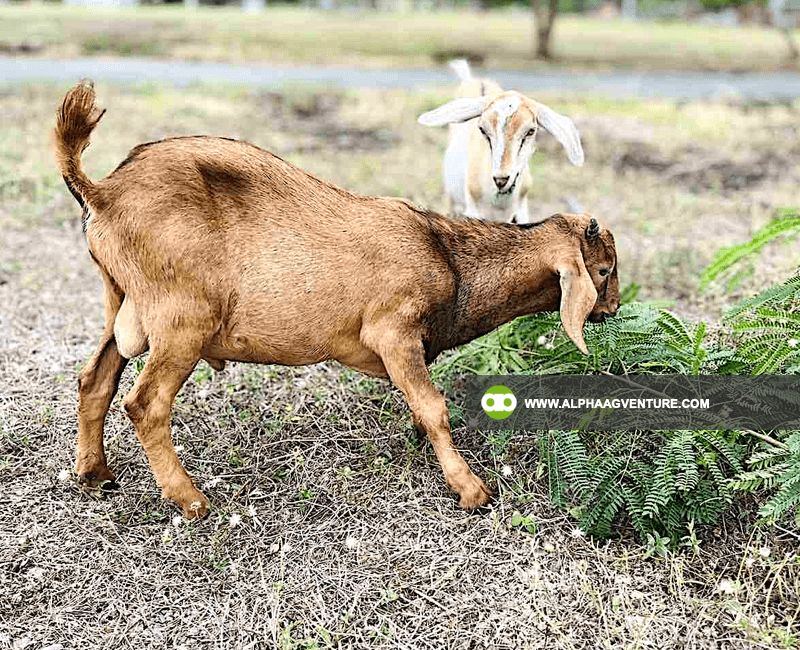
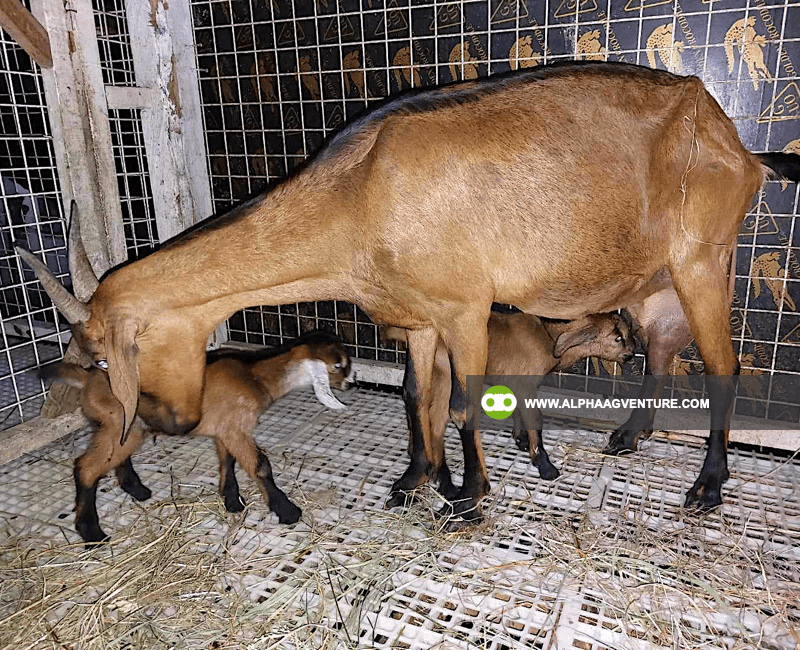
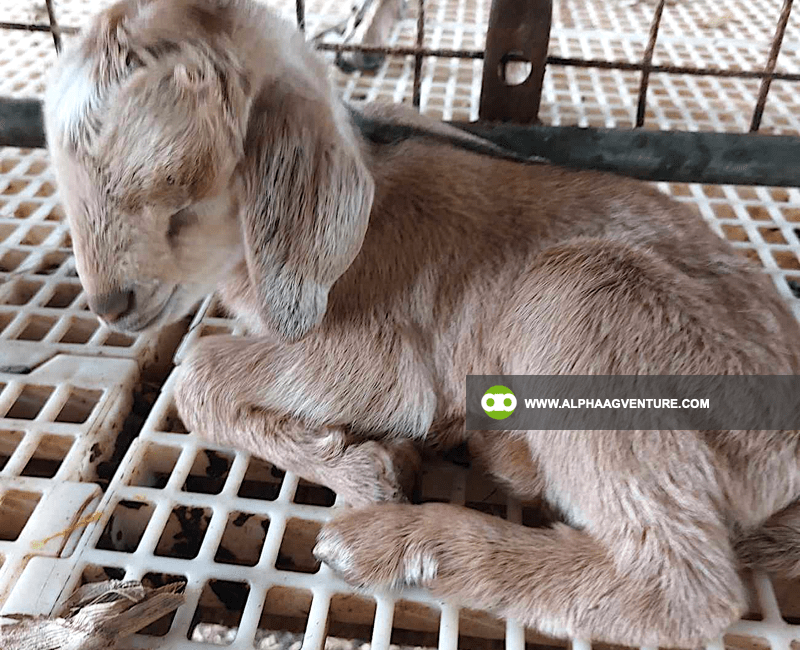
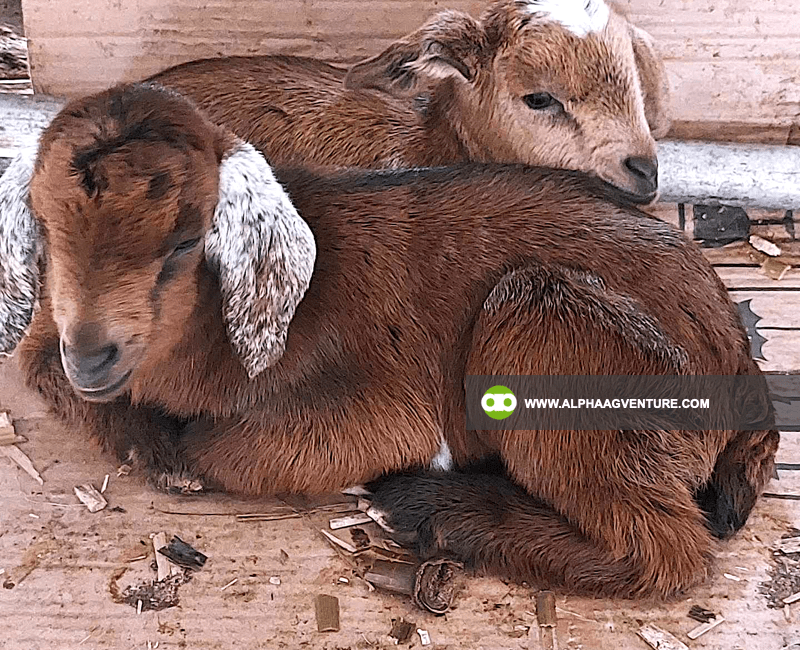
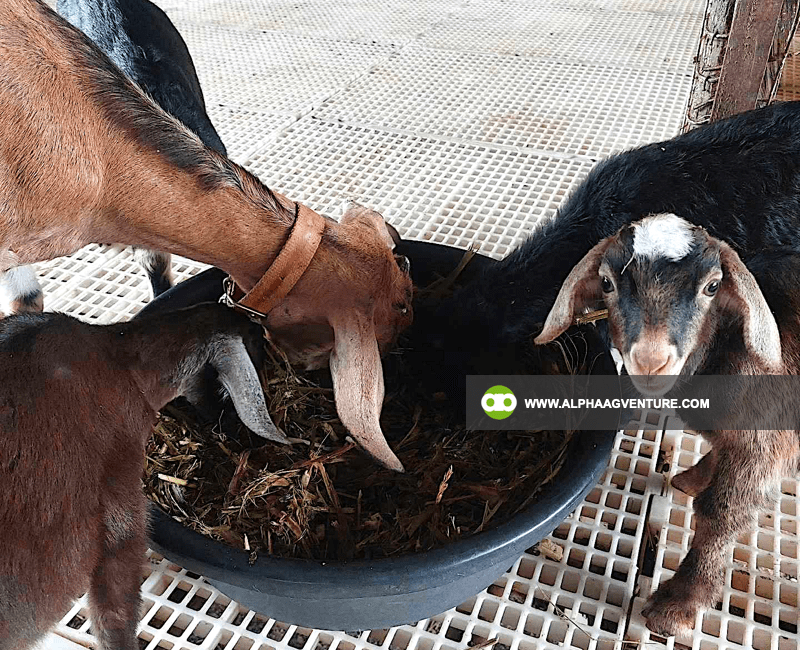
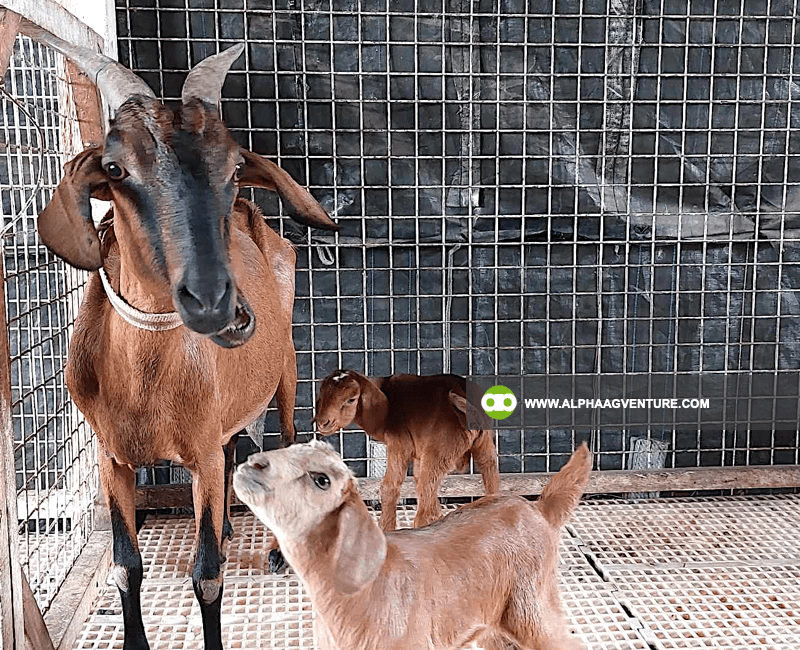
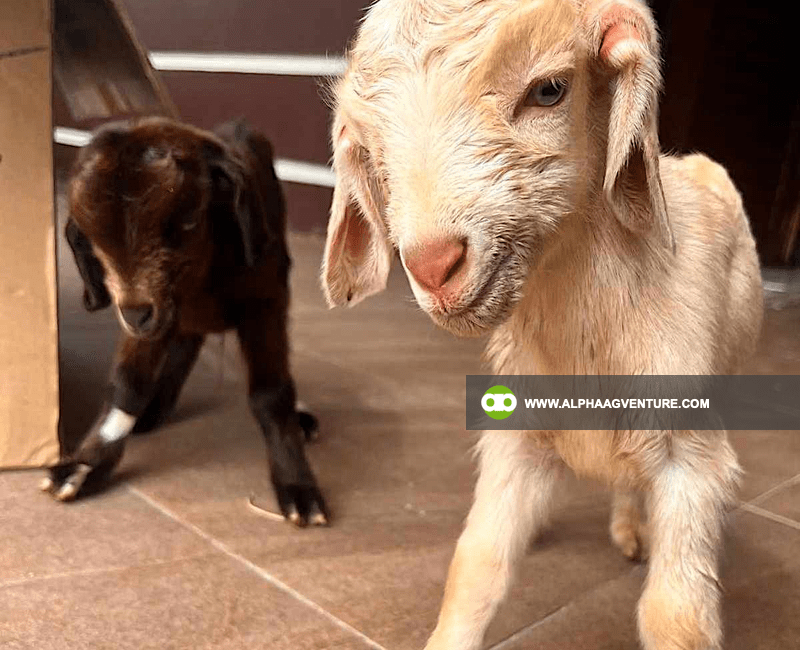
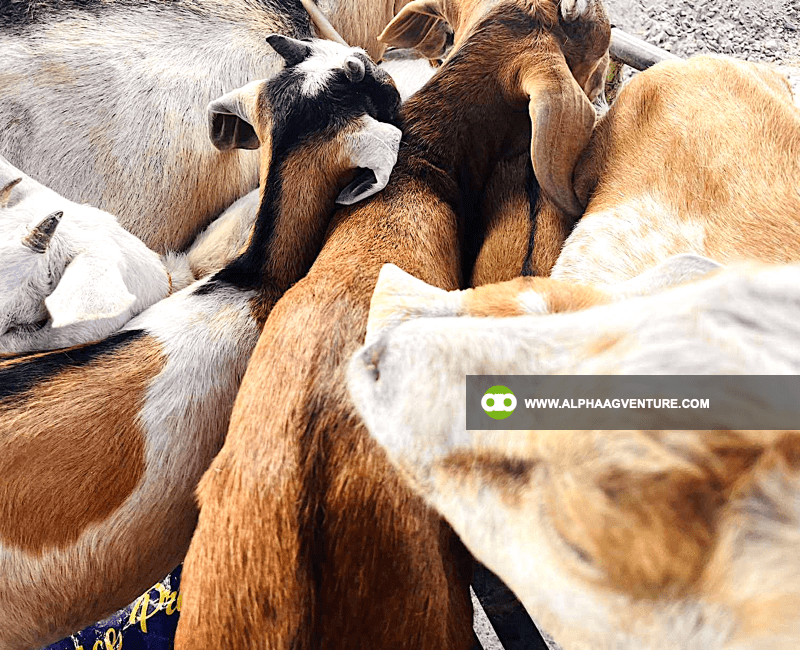
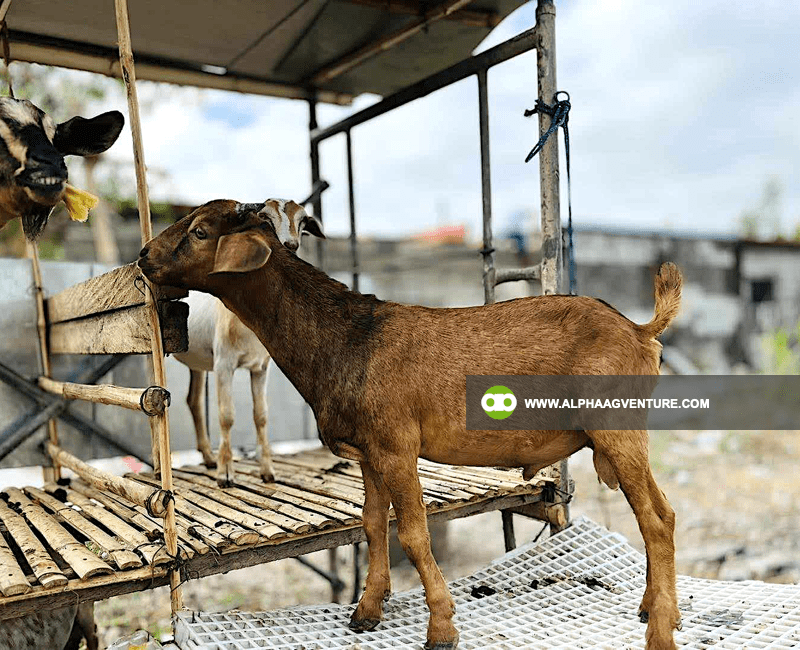
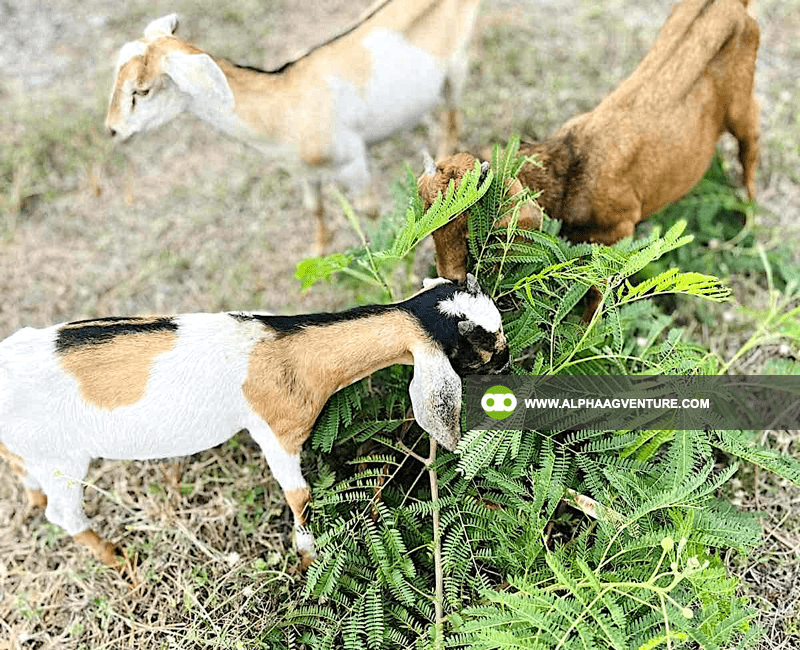
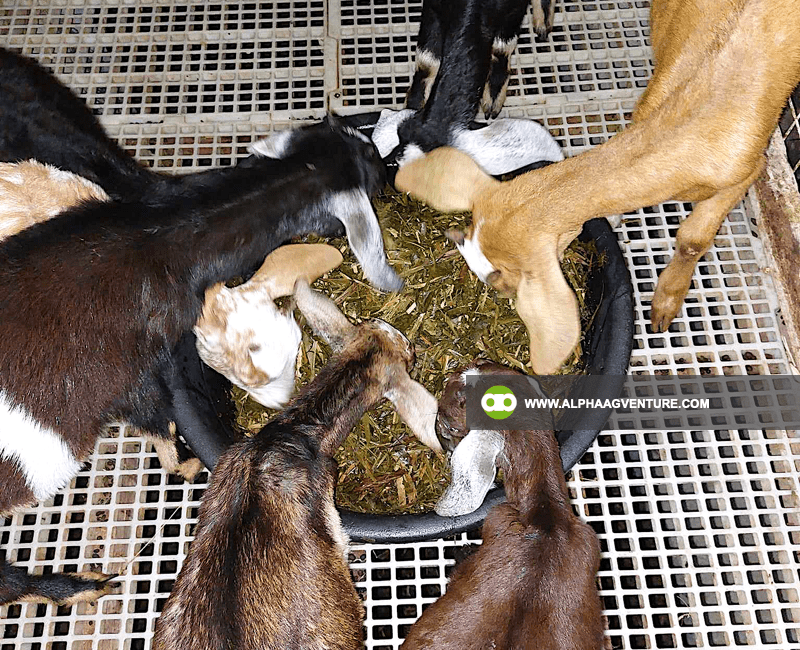
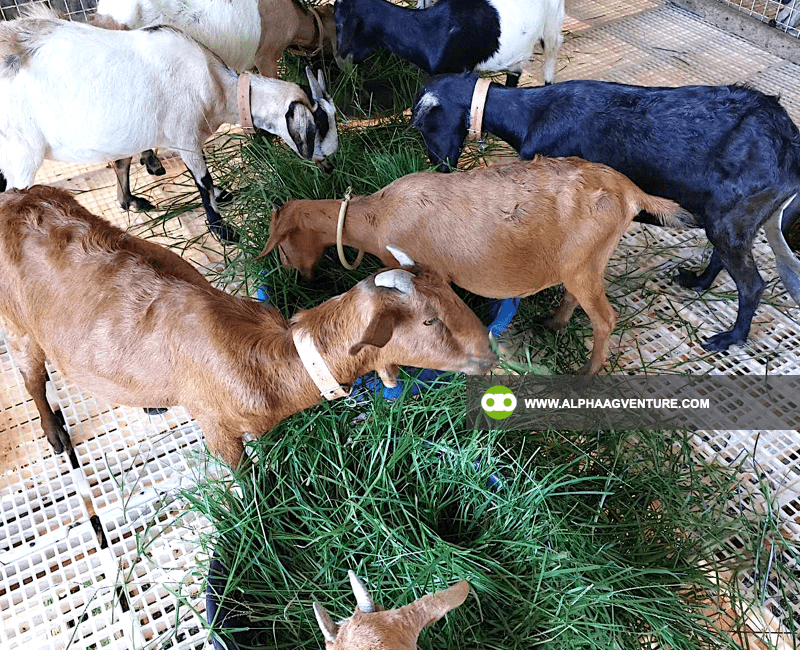
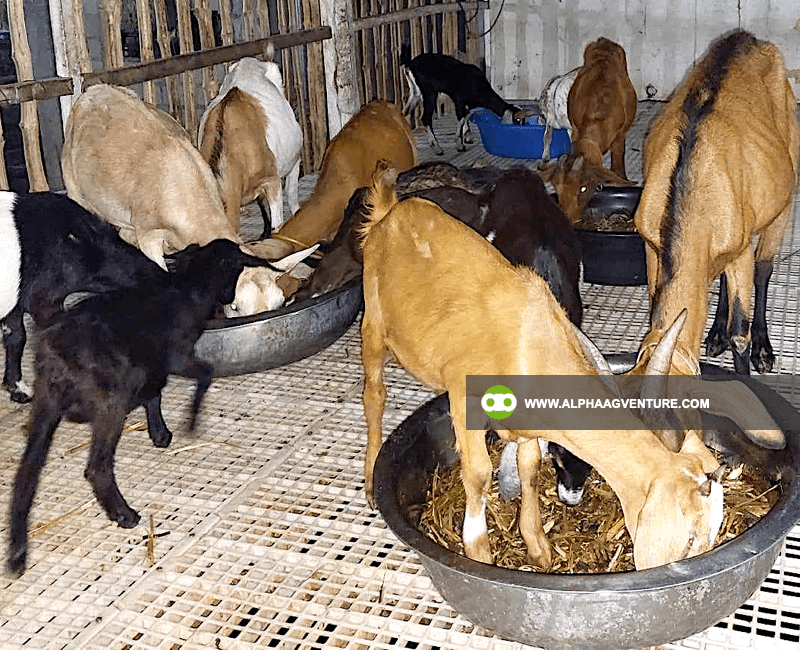
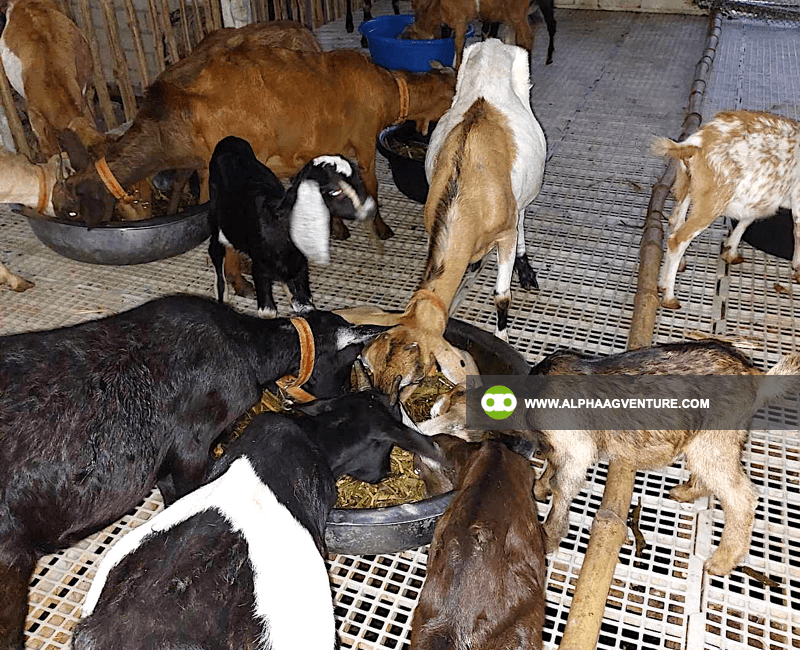

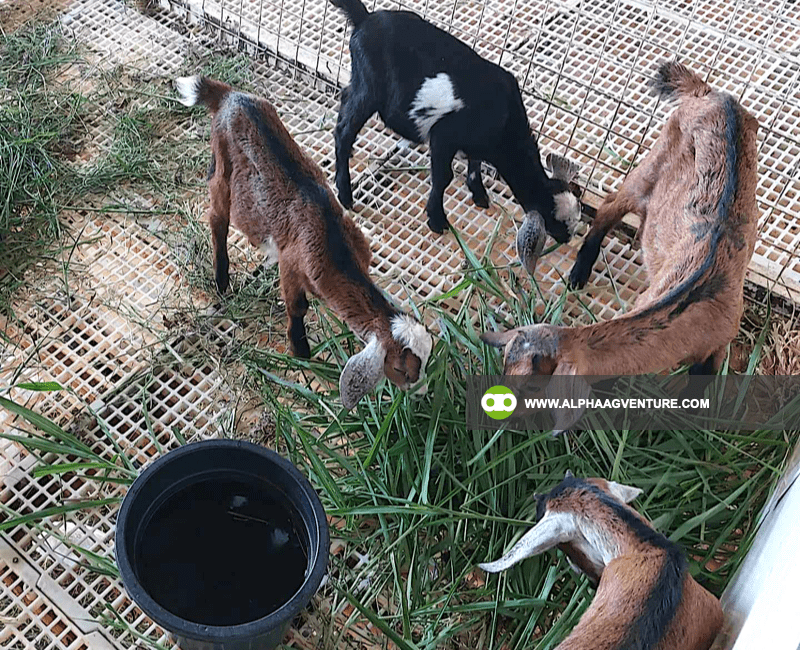
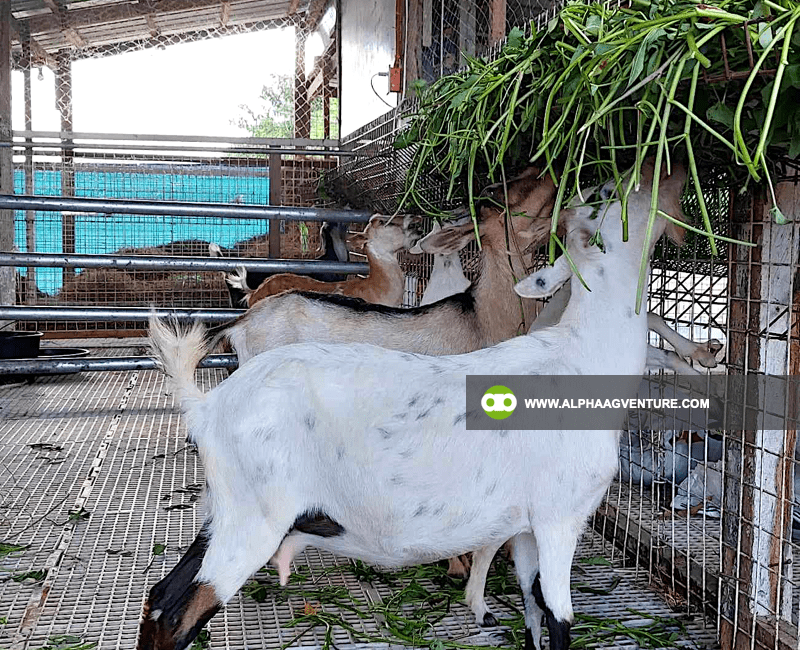

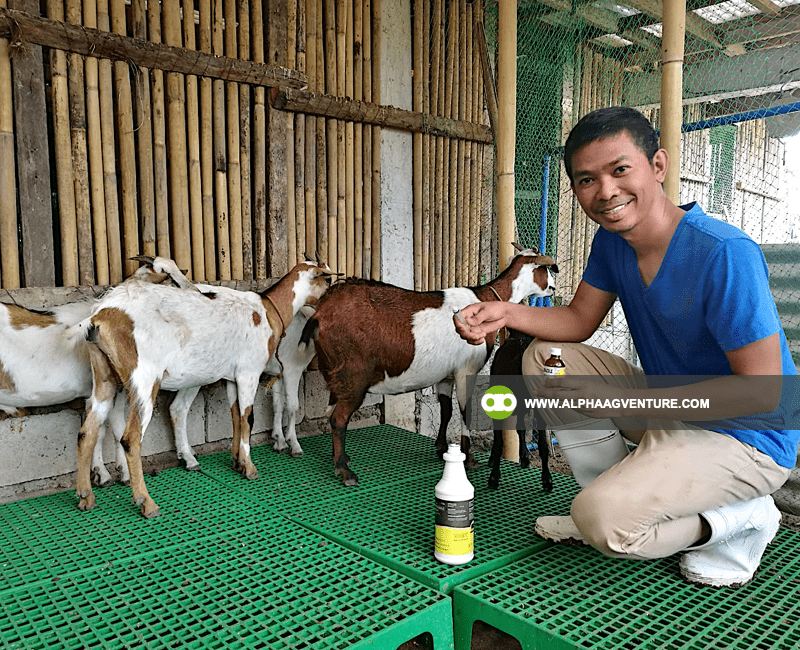
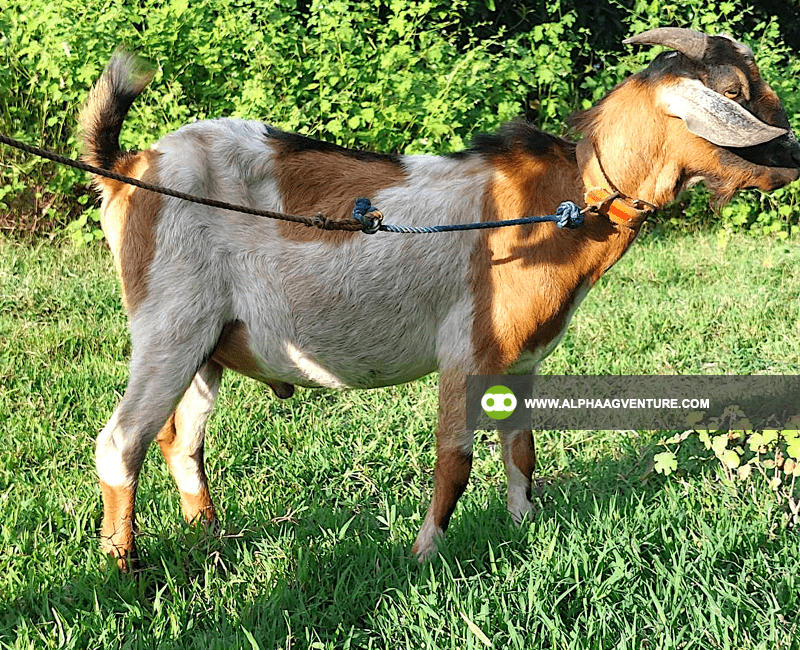




















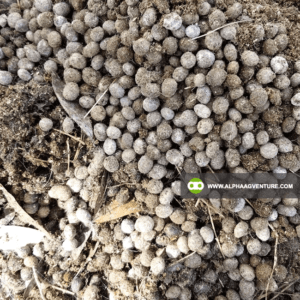
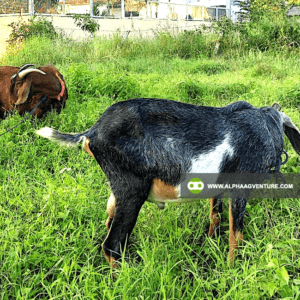
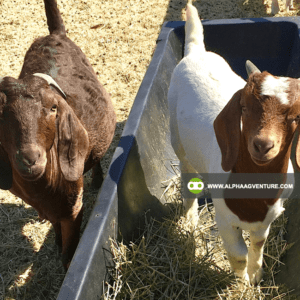
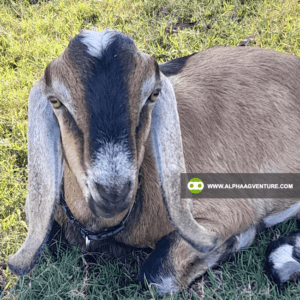
Reviews
There are no reviews yet.